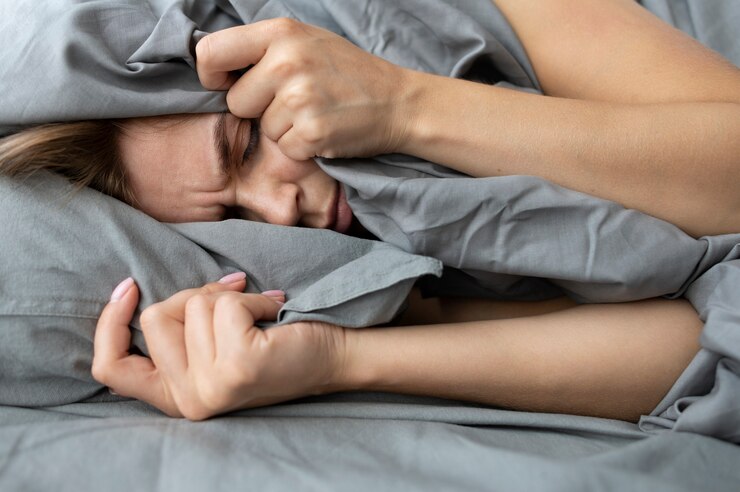Millions of people worldwide struggle with sleep disorders, impacting their daily lives and overall well-being. These disorders manifest in various forms, including insomnia, restless leg syndrome, and sleep apnea, each presenting unique challenges.
While conventional medications are available, some individuals seek alternative approaches for managing their sleep difficulties. In recent years, cannabidiol (CBD) has emerged as a potential natural remedy, gaining growing interest for its potential sleep-promoting effects.
Understanding Sleep Disorders and Their Impact
Sleep is an essential physiological process crucial for our physical and mental health. During sleep, our bodies repair tissues, consolidate memories and regulate hormones. When sleep is disrupted, it can lead to a cascade of negative consequences, including:
- Decreased cognitive function: Difficulty concentrating, learning, and making decisions.
- Weakened immune system: Increased susceptibility to infections and illnesses.
- Mood disorders: Increased risk of anxiety, depression, and irritability.
- Cardiovascular problems: Increased risk of heart disease, stroke, and high blood pressure.
Exploring the Potential of CBD for Sleep Support
CBD, a non-psychoactive compound found in the cannabis plant, has gained significant attention for its potential therapeutic benefits. While research on CBD’s impact on sleep is still evolving, preliminary studies suggest it may offer promising support for individuals struggling with sleep disorders. Here are some potential mechanisms by which CBD might contribute to better sleep:
- Reducing anxiety and stress: Anxiety and stress are significant contributors to sleep problems. CBD’s potential anxiolytic (anxiety-reducing) properties may help individuals relax and prepare for sleep by calming the mind and reducing racing thoughts.
- Alleviating pain: Chronic pain can significantly disrupt sleep patterns. CBD’s potential to manage pain, particularly inflammatory pain, may indirectly improve sleep quality by allowing individuals to rest more comfortably.
- Promoting relaxation and calmness: CBD may interact with the endocannabinoid system, a network of receptors in the body that plays a role in regulating sleep, mood, and pain perception. This interaction may promote feelings of relaxation and calmness, facilitating sleep onset and quality.
Current Research on CBD and Sleep
While promising, it’s important to understand that the research on CBD and sleep is still in its early stages. Many studies are limited in size and scope, and further research is needed to confirm the efficacy and safety of CBD for various sleep disorders. However, some studies have shown encouraging results:
- A 2017 study published in the Journal of Clinical Psychiatry investigated the effects of CBD on anxiety and sleep in 72 adults with anxiety disorders. The study found that those who received CBD oil experienced significant improvements in anxiety symptoms and sleep quality compared to the placebo group.
- A 2019 review published in Frontiers in Pharmacology analyzed the existing research on CBD and sleep. The review concluded that CBD may offer potential benefits for improving sleep quality, particularly for individuals with insomnia and REM sleep behavior disorder.
Important Considerations Before Trying CBD for Sleep
If you’re considering trying CBD for sleep support, it’s crucial to consult with your doctor or healthcare professional first. They can help you determine if CBD is a suitable option for you and address any potential interactions with existing medications or health conditions. Here are some additional points to consider:
- Legality: CBD laws and regulations vary depending on your location. Ensure you understand the legal status of CBD in your area before purchasing or using any products.
- Product quality: Choose high-quality CBD products from reputable sources. Look for third-party lab reports verifying the product’s potency and purity.
- Dosage: There is no one-size-fits-all dosage for CBD. Start with a low dose and gradually increase under the guidance of your healthcare professional.
- Potential side effects: While generally considered safe, CBD can cause mild side effects like drowsiness, dry mouth, and fatigue in some individuals.
Conclusion
While more research is necessary to definitively establish CBD’s role in sleep management, preliminary studies suggest its potential as a complementary approach. If you’re struggling with a sleep disorder, it’s crucial to speak with your doctor to explore all available options and find the most suitable solution for your specific needs.
Remember, CBD is not a magic bullet, and a comprehensive approach combining healthy sleep hygiene practices with medical advice may be the most effective strategy for achieving sustainable sleep improvements.

